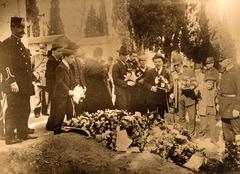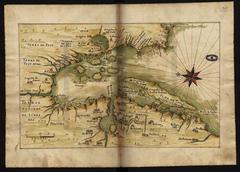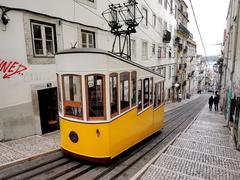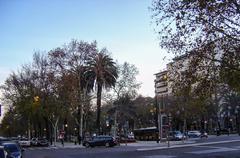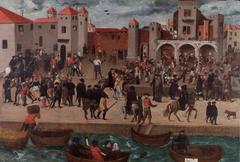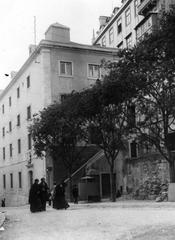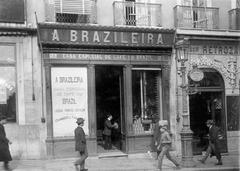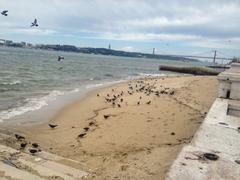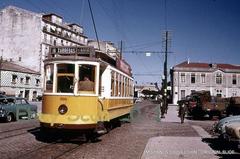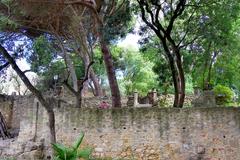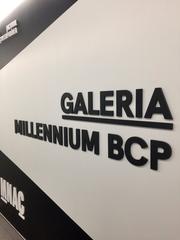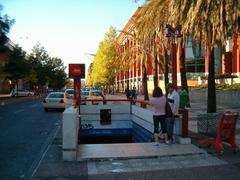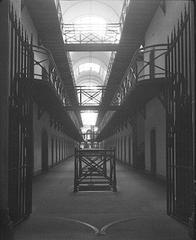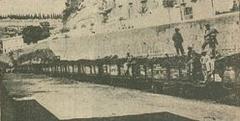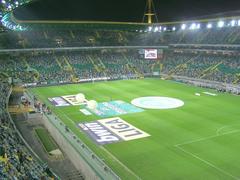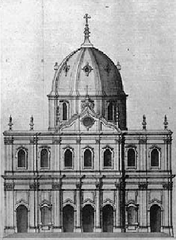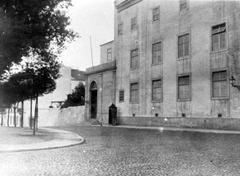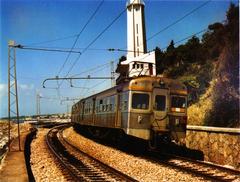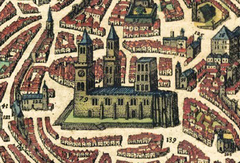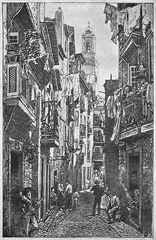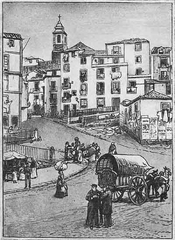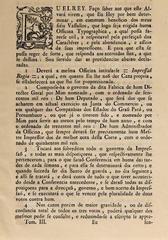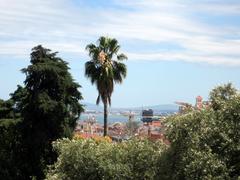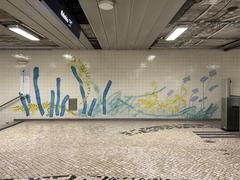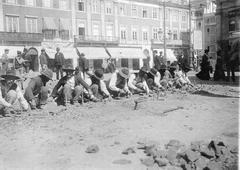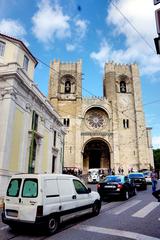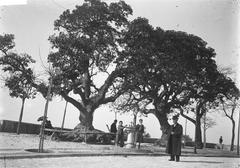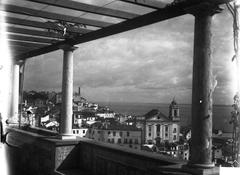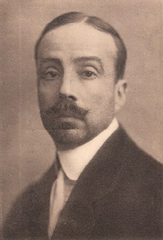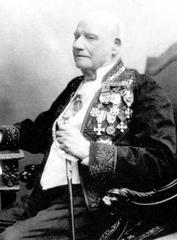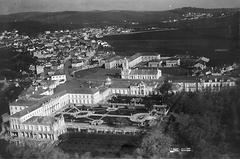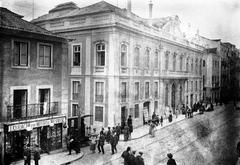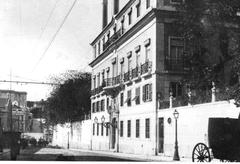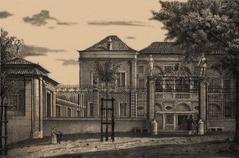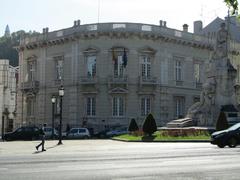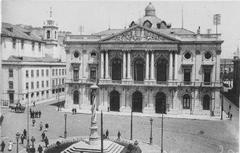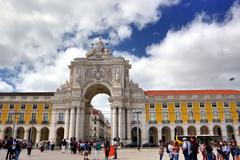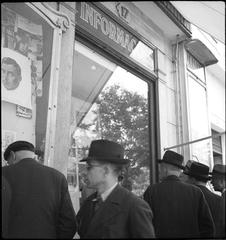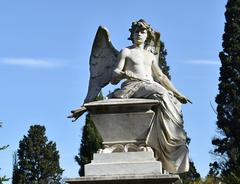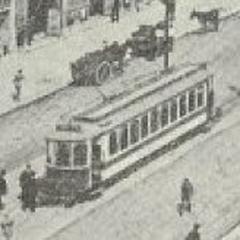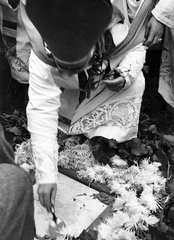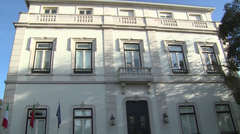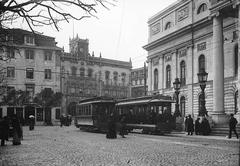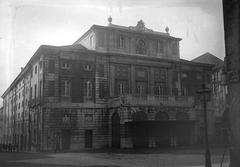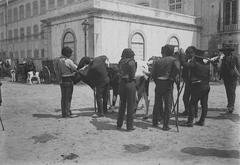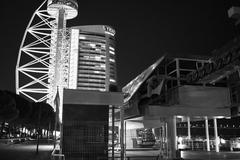Apostolic Nunciature to Portugal, Lisbon: Visiting Hours, Tickets, and Guide
Date: 03/07/2025
Introduction
Nestled in Lisbon’s prestigious Avenidas Novas district, the Apostolic Nunciature to Portugal stands as a testament to centuries of papal diplomacy and Portugal’s enduring Catholic heritage. As the official diplomatic mission of the Holy See, the Nunciature is a symbol of the Vatican’s longstanding relationship with Portugal and a discreet but influential participant in religious, diplomatic, and social affairs. Though entry is restricted, its historical significance and understated architecture make it a noteworthy landmark for travelers, scholars, and anyone interested in the intersection of faith and diplomacy (Catholics in Pakistan; GCatholic.org).
This guide offers a comprehensive overview of the Nunciature’s history, role, visiting protocols, accessibility, and recommends nearby attractions. Whether you’re a history enthusiast, religious pilgrim, or curious visitor, this resource will help you navigate your Lisbon experience with clarity and respect.
Table of Contents
- Introduction
- Historical Overview
- The Modern Apostolic Nunciature in Lisbon
- Visiting Information
- Nearby Attractions and Suggested Itineraries
- Frequently Asked Questions (FAQ)
- Conclusion
- References
Historical Overview
Early Papal Diplomacy
The roots of papal diplomacy stretch to the early centuries of the Catholic Church, when papal envoys known as “apocrisiaries” served as messengers between the Pope and Christian or secular authorities. The use of the title “Nuncio” (Latin for messenger or ambassador) reflects the dual spiritual and diplomatic missions entrusted to these representatives (Catholics in Pakistan).
Establishment of the Nunciature in Portugal
The permanent Apostolic Nunciature to Portugal was established during the 16th century, coinciding with the Age of Discovery. As Portugal’s influence expanded globally, the Nunciature became a hub for coordinating missionary activity and navigating church-state relations, particularly under the Padroado Real system, which gave the Portuguese crown authority over colonial ecclesiastical matters (Catholics in Pakistan).
Evolution through Political and Religious Changes
Over centuries, the Nunciature adapted to Portugal’s shifting political landscape—from monarchy to republic, dictatorship, and democracy. The 19th century brought significant challenges with liberal reforms and church-state tensions, while the 20th century saw the temporary closure of the Nunciature following the establishment of the Portuguese Republic and its later re-opening under the Estado Novo regime. Today, the Nunciature continues to serve as a diplomatic and ecclesiastical bridge in a modern, pluralistic Portugal (Waymarking).
The Modern Apostolic Nunciature in Lisbon
Role and Functions
The Apostolic Nunciature acts as the Vatican’s embassy in Portugal and the main channel of communication between the Holy See and both the Portuguese government and local Catholic Church. The Nuncio, who holds ambassadorial rank, represents the Pope, oversees the appointment of bishops, participates in interfaith initiatives, and supports Catholic social teachings (GCatholic.org).
Architecture and Cultural Significance
Located at Avenida Luís Bivar 18, the Nunciature’s building exemplifies the dignified simplicity characteristic of Vatican diplomatic missions. The façade harmonizes with the surrounding early- to mid-20th-century architecture, adorned with the Vatican flag and coat of arms to signify its diplomatic status. While the interior is reserved for diplomatic functions and official ceremonies, the exterior can be appreciated by visitors interested in ecclesiastical architecture and international relations (Waymarking).
Visiting Information
Location and Access
Address: Avenida Luís Bivar 18, 1069-147 Lisboa, Portugal
The Nunciature is situated in the central and accessible Avenidas Novas district, close to major landmarks like Eduardo VII Park and the Calouste Gulbenkian Museum.
Contact: (+351) 213 171 130 (evisa-europe.com)
Public Transport:
- Metro: Picoas or Parque stations (Yellow Line)
- Bus: Multiple routes serve Avenida Luís Bivar
- Taxi/Ride-Sharing: Readily available in the district (Lisbon Explorers)
Visiting Hours and Entry Policy
- Public Access: The Nunciature is not open for public tours or casual visits. Entry is strictly by official appointment or invitation.
- Operating Hours: Monday to Friday, 9:00 AM to 5:00 PM, subject to change during religious holidays or special events.
- Admission: No tickets or entry fees, as access is restricted. There are no public guided tours.
Accessibility
The Avenidas Novas district features broad, modern sidewalks and is relatively flat, making it more accessible than many older parts of Lisbon.
- Wheelchair Access: The building is equipped for wheelchair entry, but Lisbon’s sidewalks may be uneven in places.
- Public Transport: Metro stations nearby are accessible with elevators and ramps; buses are generally equipped for wheelchair users (Taste of Lisboa; Visit Portugal).
Visitor Protocols and Etiquette
- Appointments: All visits require prior arrangement and official business.
- Security: Present valid ID and expect standard security screening.
- Dress Code: Modest, formal attire is required.
- Etiquette: Address staff and clergy with appropriate titles (e.g., “Your Excellency” for the Nuncio).
- Photography: Allowed only for the exterior from public spaces; interior photography is strictly prohibited.
Nearby Attractions and Suggested Itineraries
Enhance your visit to the Nunciature’s district with nearby highlights:
- Eduardo VII Park: Lisbon’s largest central park, perfect for walks and panoramic views.
- Calouste Gulbenkian Museum: A world-class art museum within walking distance.
- Jardim Amália Rodrigues: A serene urban green space.
- Lisbon Cathedral (Sé de Lisboa): The city’s oldest church.
- Jerónimos Monastery: A UNESCO World Heritage site renowned for its architecture (BeeLoved City).
Frequently Asked Questions (FAQ)
Q: Can I tour inside the Apostolic Nunciature?
A: No, public tours are not available; entry is by official appointment only.
Q: What are the visiting hours?
A: The Nunciature operates Monday to Friday, 9:00 AM–5:00 PM, for official business only.
Q: Is there an admission fee?
A: No, as the Nunciature is not open to the public.
Q: Is the building wheelchair accessible?
A: Yes, but be mindful of Lisbon’s sometimes uneven sidewalks.
Q: Can I take photos of the Nunciature?
A: Yes, but only of the exterior from public spaces. Do not photograph security personnel or features.
Conclusion
The Apostolic Nunciature to Portugal is a distinguished diplomatic and religious institution, embodying centuries of history, negotiation, and interfaith dialogue. While its doors remain closed to casual visitors, the Nunciature’s dignified presence and surrounding neighborhood offer a meaningful window into Lisbon’s spiritual and international heritage. To enrich your exploration, combine a visit to the Nunciature’s exterior with nearby museums, parks, and historical landmarks.
For those seeking deeper engagement, guided walking tours and digital resources such as the Audiala app provide additional context and insight into Lisbon’s religious and diplomatic tapestry. Always respect protocols, plan ahead if you have official business, and leverage local tips for a seamless and enriching experience.
References
- Historical Note on the Apostolic Nunciatures – Catholics in Pakistan
- Apostolic Nunciature to Portugal – GCatholic.org
- Apostolic Nunciature Lisbon Visiting Hours, Access, and Cultural Significance – evisa-europe.com
- Lisbon Travel Tips – BeeLoved City
- Nunciatura Apostólica Lisboa – Waymarking.com
- Accessible Lisbon: Tips for Travelers with Reduced Mobility – Taste of Lisboa
- Accessible Tourism – Visit Portugal
- Lisbon 2025 Most Fantastic Tourism Guide – Lisbon Explorers
For more travel inspiration and up-to-date tips on Lisbon’s diplomatic and religious landmarks, download the Audiala app and follow us on social media.

